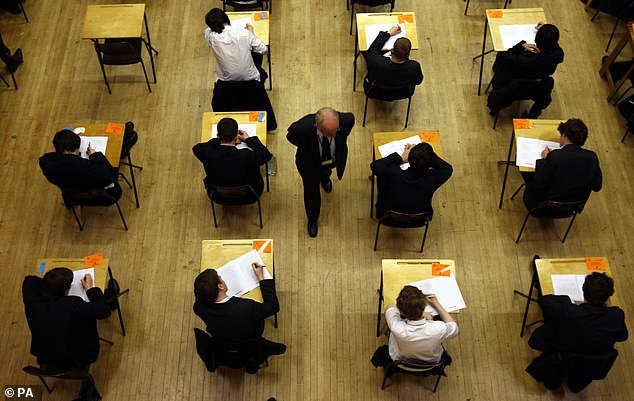What will replace GCSEs and A-levels and will the system be fair? As Government plans to hand teachers control over this year’s exam grades, we answer the important questions
What’s going on?
Since GCSEs and A-levels were scrapped again this year due to lockdown, the Government has been looking for a new way of ensuring students are given fair marks.
A similar fiasco last year led to exams regulator Ofqual devising a computer algorithm to moderate grades. But this resulted in thousands of students being downgraded, a huge outcry and the system being dumped in days.
Keen to avoid a repeat, this year the Government has plumped for a far simpler model – just by putting faith in its teachers.
What will replace GCSEs and A-levels?
Teachers will have a free hand in deciding how to assess their students. It is assumed that many will use questions provided by exam boards, but this is not guaranteed.
They could instead give their mark based on pupils’ previous essays and other substantial pieces of work.
Another option is for teachers to create their own tests. Schools and colleges will submit their grades to exam boards by June 18 to maximise teaching time.
Then A-level results will be released on August 10, and GCSEs just two days later on August 12.
As Government plans to hand teachers control over this year’s exam grades, we answer the important questions (stock photo)
Will the system be fair?
By April, teachers should have told their classes which pieces of work will count towards their final grades, so that pupils know what to expect in the coming weeks.
This time, after grades are submitted by schools, the exam boards and Ofqual will be avoiding algorithms at all costs when they check results. Instead – in a bid to ensure consistency – they will be relying on random sampling.
Officials will also investigate any schools suspected of unfairly boosting marks. But it is anticipated that only a small number of grades would be altered at that stage.
Can I appeal if I get the wrong grades?
Overall, the reduction in scrutiny is likely to lead to an uptick in grades, so many students are certain to be happy with their results. However, the boost to grades could be less pronounced than last year if teachers closely follow guidance from exam boards.
If pupils are still disappointed, the Government has said a free route of appeal will be open to all. By bringing forward August’s results days, it is hoped that any A-level students who want to challenge their grades will have enough time to appeal without a knock-on effect on starting university.
The Department for Education says that schools must help pupils appeal.
What is the potential problem?
Experts warn that this year’s approach could lead to significant grade inflation – which in turn could mean the grades have less value to colleges, universities and employers.
